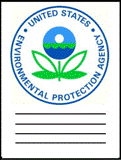United States Environmental Protection Agency

United States Environmental Protection Agency: Publications
Document Type
Article
Date of this Version
7-2005
Citation
july-august 2005 national wetlands newsletter Page 1-3
Abstract
In 2003 the U.S. Environmental Protection Agency issued its Water Quality Trading Policy. Water quality trading allows facilities facing high pollution-control costs to meet their regulatory requirements by purchasing environmentally equivalent or superior pollution reductions from another source, often at a lower cost. The policy, which hopes to achieve "water quality and environmental benefits greater than would otherwise be achieved under more traditional regulatory approaches," established the ground rules for trading and encourages states, interstate agencies, and tribes to develop and implement water quality trading programs for nutrients, sediments, and other pollutants. The policy generated controversy among some stakeholder groups; environmental organizations warned that it would simply allow “polluters to avoid compliance by buying credits” and let “the water quality in some lakes, streams, and rivers be traded away for the benefit of other waterways."
Included in
Earth Sciences Commons, Environmental Health and Protection Commons, Environmental Monitoring Commons, Other Environmental Sciences Commons


Comments
U.S. government work